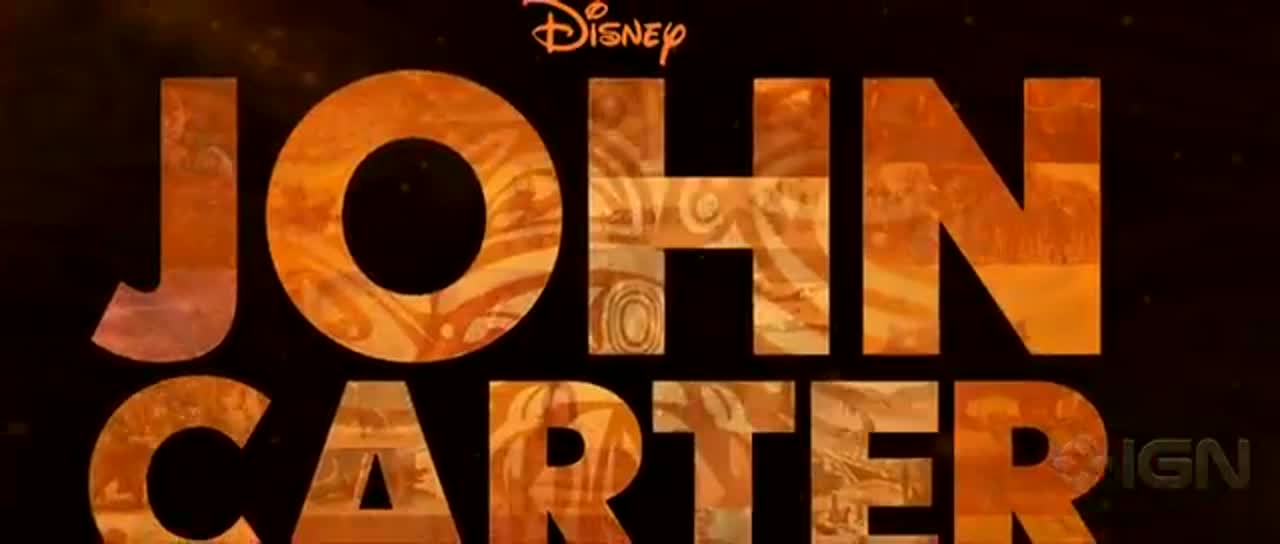🎬 John Carter (2012)

Review of “John Carter” (2012)
Introduction
“John Carter,” directed by Andrew Stanton and based on Edgar Rice Burroughs’ classic novel “A Princess of Mars,” is a science fiction epic that attempts to bring to life the story of a Civil War veteran who finds himself on Mars. The film, released by Walt Disney Pictures, features a blend of adventure, romance, and fantasy, set against the backdrop of a richly imagined alien world. Despite its ambitious scope and impressive visuals, “John Carter” received mixed reviews upon its release and struggled at the box office. This review will explore the film’s narrative, characters, visuals, and themes, as well as its overall impact.
Plot Summary
The film follows John Carter (Taylor Kitsch), a former Confederate soldier who is transported to Mars (or Barsoom, as it is called in the story) after discovering a mysterious medallion. On Mars, he discovers a world filled with strange creatures, warring factions, and advanced civilizations. The planet’s low gravity grants him superhuman abilities, making him a formidable warrior.
Carter becomes embroiled in a conflict between the Tharks, a race of green Martians led by Tars Tarkas (Willem Dafoe), and the humanoid cities of Helium, led by Princess Dejah Thoris (Lynn Collins). The political tensions and power struggles among the Martian factions mirror those of Earth, adding layers to the narrative. Throughout the film, Carter grapples with his own past and the moral implications of his role in this alien world.
Character Development
John Carter
John Carter is portrayed as a reluctant hero, grappling with loss and the futility of war. His character arc is central to the film; he evolves from a man seeking only to return home to a leader who embraces his destiny on Mars. Taylor Kitsch delivers a decent performance, though some critics argue that the character lacks depth and relatability.
Princess Dejah Thoris
Lynn Collins shines as Princess Dejah Thoris, a strong-willed and intelligent character who defies the traditional damsel-in-distress trope. She is a capable warrior and a scientist, making her a pivotal figure in the struggle for Mars’ future. Her chemistry with Carter adds emotional weight to the story, though some viewers may feel her character could have been further developed.
Supporting Characters
The supporting cast includes notable performances from Willem Dafoe as Tars Tarkas, who provides a comedic and emotional anchor, and Mark Strong as the villainous Sab Than. While the characters are visually striking and fit into the film’s grand scale, their motivations can sometimes feel underdeveloped.
Visuals and Special Effects
One of the standout features of “John Carter” is its visual artistry. The lush landscapes of Mars, created through a combination of practical effects and CGI, are breathtaking. The Thark city and the various alien creatures are imaginative and well-designed, showcasing Stanton’s background in animation.
However, the film’s visuals were often criticized for lacking coherence. Some scenes felt cluttered, and the rapid pacing made it difficult for viewers to fully appreciate the intricacies of the world-building. While the visuals are impressive, they do not always compensate for the narrative shortcomings.
Themes
“John Carter” explores several themes, including heroism, redemption, and the consequences of war. Carter’s journey reflects a universal quest for purpose and belonging, resonating with audiences who seek meaning in their own lives. The film also touches on the impact of colonialism, as the various Martian races vie for power and control.
Despite its ambitious themes, some critics argue that the film does not delve deeply enough into these issues. The political intrigue, while present, is often overshadowed by action sequences, leaving the audience wanting more substance.
Reception and Legacy
Upon its release, “John Carter” was met with mixed reviews from critics. While some praised its visual spectacle and ambition, others criticized its convoluted plot and character development. The film’s box office performance was disappointing, leading to significant financial losses for Disney.
Despite its initial reception, “John Carter” has gained a cult following over the years. Fans appreciate its unique take on the sci-fi genre and its connection to the source material. The film’s failure at the box office has become a point of discussion among film enthusiasts, with many arguing that it deserves a second chance.
Conclusion
“John Carter” is a film of contrasts. It boasts stunning visuals and an ambitious narrative but struggles with character development and pacing. While it may not have achieved the success it aimed for, it remains a noteworthy entry in the science fiction genre. The film’s exploration of themes like heroism and redemption, combined with its imaginative world-building, offers viewers a glimpse into a rich and complex universe.
Overall, “John Carter” stands as a reminder of the challenges that come with adapting beloved literary works into film. It invites viewers to reflect on the nature of heroism, the importance of belonging, and the consequences of our choices—both on Earth and in the far reaches of Mars.










